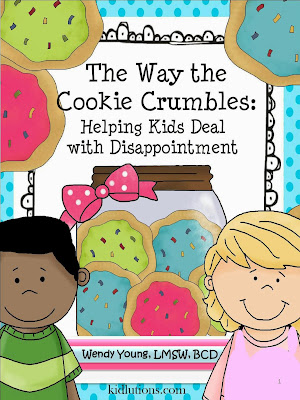Feelings Activities for Young Children
1. Identifying Feelings
Identifying feelings is the first step to helping your child learn how to deal with them. Encourage your child to draw pictures of different feeling faces and compile them into a book. When the book is complete, peruse the book with your child and do the following things:
1. Talk about the feeling portrayed and what might make a person feel that way. Allow your child time to generate ideas.
2. Talk about what a person can do when they have said feelings.
3. Download our "Fun with Feelings: Emotions Matter" workbook for kids for more feelings fun! Just $1.99 and you can use it with your own kid, in childcare settings, preschool....wherever!
2. Storytime
When reading stories to your child, pause to ask what he thinks the character in the book is feeling. Ask about a time he felt that way, and what he did about it. Ask him to predict what the character might do about it or how he thinks he will handle it. Story time is a great time to expand upon feelings, as your child will likely be in a relaxed state and primed to learn. This discussion will also help your child problem-solve how to handle BIG FEELINGS. Those will be ideas he can access in the future when he is faced with strong emotions.
3. BIG FEELINGS
Helping kids manage BIG FEELINGS can be a challenge. Especially if their big feelings sets off a chain reaction that has you feeling just as upset as they are (read: angry). Don't get hoodwinked into joining in. You cannot be an effective "feelings coach" if you do! Stay calm! Check out our printable that helps kids identify Angry Feelings. You can join our Anger Toolbox for Kids if big anger is an ongoing problem for your child, too. It's free!
4. Teaching Self-Control
Childsplay is one of the best ways to drive home lessons to young children. Play is the natural language of children and a natural route to self-discover. Playing games that teach self-control over and over again will solidify the lesson in your child's mind. See what games can help here.
5. Making All Feelings Okay
Not minimizing kids' feelings, allowing them to process the emotions is healthy and desirable. What's more, kids who can manage their upset may have built in immunity to substance abuse and other addictions. Read more about Five Reasons Not to Minimize Your Child's Feelings.
6. Feelings Charades
Here's another fun way to help kids learn about feelings: Feelings Charades.
7. Kidlutions' Own Resources for Dealing with Feelings
Check out these resources exclusive to Kidlutions. These resources were developed for use in therapy, but work equally well at home, in childcare settings, in the classroom, with scouting groups and in school counseling settings.
A Bushel Full of Feelings
Cool Down Strategies for Kids
Ice Cream Cones and Frozen Pops: The Coolest Ways to Help Kids Chill Their Anger
Feelings Games for Early Childhood
8. Award Winning Ways to Help Kids Cope with Feelings
If you are looking for therapist approved/mom approved ways to help kids cope with feelings, look no further than our Kidlutions Preferred Product Award winning resources. You'll find a treasure trove of products that are suitable for every day play, as well as gift-giving for special occasions.
~~~~~~~~~~~~~~~~~~~~~~~~~~~~~~~~~~~~~~~~~~
Come See Our Latest Training
for
Educators, Parents and Clinicians!
Click image above or find it all HERE!
~~~~~~~~~~~~~~~~~~~~~~~~~~~~~~~~~~~~~~~~~~
As always, from Kidlutions, we wish you Happy Parenting {and Teaching}!









Comments